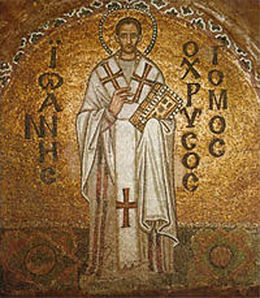2. GENTLEMEN will answer the questions regarding the Rule of 1223 and the Testament of St. Francis.(pp 201 - 212)
LADIES will answer the questions regarding the Admonitions of St. Francis and his Letter to All the Faithful. (pp 213 - 228)
Be thorough in your responses and prepared to lead class discussion over your assigned texts.
Questions for the Rule of 1223:
1. Summarize St. Francis' rule regarding the Friars' clothing. What practical and spiritual benefits are there to following this rule?
2. How does Francis tell his friars to respond to those who live lives of luxury? Why?
3. Regarding the Liturgy of the Hours, why does St. Francis make a distinction between clerics and lay brothers? (this presupposes you know what these two are. If you do not, find out.)
4. When do the friars have to observe fasts and why?
5. How are friars to behave when they are travelling? What does this chapter of the Rule tell us about how friars are different from monks?
6. Why are the friars forbidden, under any circumstances, to accept money?
7. In Chapter 6 St. Francis insists that his friars cling to poverty. Why would he be so strict on this issue rather than allow for some degree of leniency or moderation?
8. Why should the friars not be angry or upset at the sins of others? Should this apply universally to all people?
9. Create a chart to illustrate the structure of the order. Explain how the order is governed.
10. What guidance does Francis give regarding preaching? Evaluate the most recent homily you heard in light of this guidance. How does it measure up?
11. Chapter 10 deals with conflict among the friars. What kind of conflicts might arise among friars? How should the conflicts be handled?
12. Does Francis' guidance to the friars who are illiterate surprise you? Do you think it is still applicable today?
Questions for The Testament of St. Francis
1. Is Francis' Reverence for priests too trusting or uncritical (especially in light of the priest abuse scandal that has scarred the Church)? What are current attitudes toward priests among Catholics?
2. Is it hypocritical of Francis to say that he clings to poverty and yet he wants the Blessed Sacrament to be "honored, venerated, and reserved in places which are richly ornamented,"?
3. Francis claims that his chief goal is to live the life of the Gospel. How effective do you think his rule is at establishing a Gospel-based life? Are there any deficiencies?
4. What sort of work does Francis say is suitable for a friar to perform? Why should a friar be engaged in work at all?
5. How should the order deal with unruly or disobedient friars?
6. How, on pg. 212, does St. Francis say the rule should be interpreted and obeyed?











